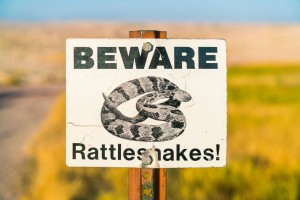Should You Get the Rattlesnake Vaccine?
By Caroline Coile
In a word: No.
Here are some reasons why:
The American Animal Hospital Association (AAHA) recently released a statement (https://www.aaha.org/…/key…/rattlesnake-toxoid/) outlining the lack of evidence of the vaccine efficacy and emphasizing no published data support the vaccine’s effectiveness.  They also stated that although one study (DOI: 10.2460/ajvr.76.3.272) with mice showed higher survival rates for those injected with high doses of Western Diamondback venom, they did not have significantly longer survivals for other rattlesnake venoms in the study, and the mice were given 50 to 1500 times the dose for dogs. In addition, vaccination still did not guarantee the mice survived after being subjected to venom, and some vaccinated mice died or required euthanasia earlier than unvaccinated mice exposed to the same level of venom.
They also stated that although one study (DOI: 10.2460/ajvr.76.3.272) with mice showed higher survival rates for those injected with high doses of Western Diamondback venom, they did not have significantly longer survivals for other rattlesnake venoms in the study, and the mice were given 50 to 1500 times the dose for dogs. In addition, vaccination still did not guarantee the mice survived after being subjected to venom, and some vaccinated mice died or required euthanasia earlier than unvaccinated mice exposed to the same level of venom.
In a study (DOI: 10.2147/VMRR.S69216) of vaccinated versus unvaccinated dogs bitten by snakes, vaccinated dogs did not have statistically significant better outcomes.
Vaccinated dogs have had anaphylaxis after being bitten, probably because the vaccine provided sensitizing exposure to snake venom antigens (https://doi.org/10.1016/j.toxicon.2017.12.044)
Vaccines work by priming the immune system to produce antigens when faced with intruders, most often bacteria or viruses. It allows the body to produce these antibodies at the same time the intruders are also reproducing. Venom is different. It enters the body all at once. It doesn’t matter that the body is primed to produce antibodies, because there’s no way the body can produce antibodies fast enough as all the venom is instantly injected.
The National Snakebite Support Group (National Snakebite Support | Facebook), headed by North America’s foremost snakebite authorities for humans and dogs, does not recommend the vaccine.
Short URL: http://caninechronicle.com/?p=266309
Comments are closed












